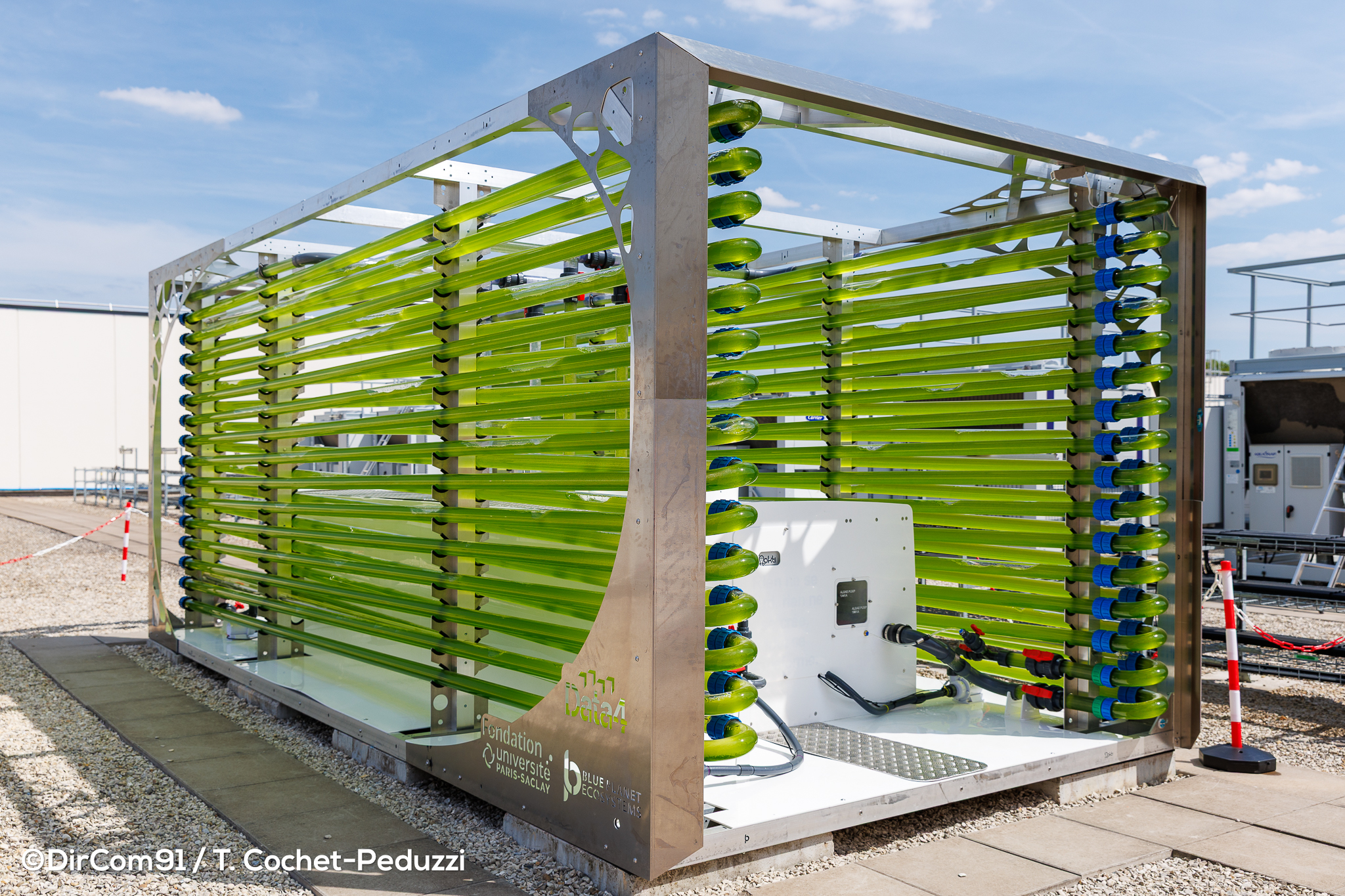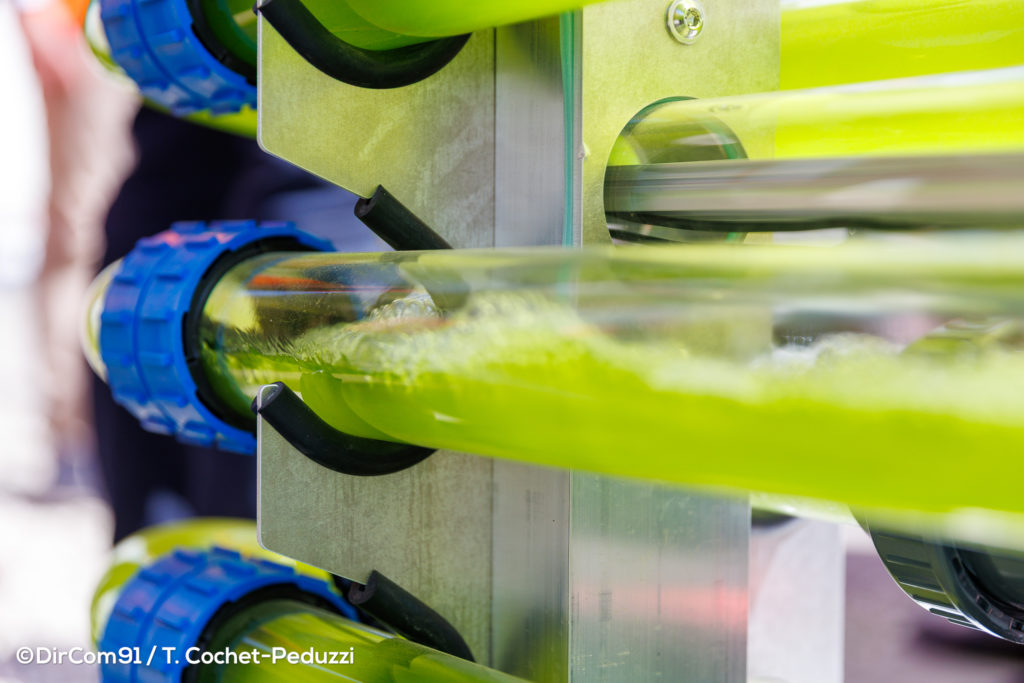
Tapping into the heat of data centers is one of the key challenges facing our industry today. Right now, less than 10% of the heat generated by servers is recovered – the rest vanishes into thin air. Why? Because our facilities are often far from cities, district heating networks are few and far between, and modern buildings just don’t need as much warmth as they used to. This begs the following question: instead of letting all that energy go to waste, how can we transform it into something much more valuable, or even virtuous?
To answer this question, we’ve teamed up with the Paris-Saclay University foundation to launch a first-of-its-kind project on our Marcoussis campus, in the Essonne département of France: a bio-circular data center demonstrator that’s breaking new ground. But instead of heating buildings or offices, we’re using that excess server heat to fuel the growth of microalgae. And this is more than a science experiment: it’s a prototype for a scalable, sustainable future.
A practical innovation in action – since May 2025
Since 26 April, a production module dedicated to growing Chlorella algae has been operating on the roof of our DC10 data center. Designed by the Austrian start-up Blue Planet Ecosystems, this LARA system uses the 26-30 °C heat radiating from servers to create an ideal growth environment.
The self-contained, closed-loop module is grounded in robust science: a feasibility study conducted as part of the ABIOMAS research chair (with support from the Paris-Saclay foundation) found that the carbon-capture capacity of these algae could be up to 20 times greater than that of a tree (for an equivalent surface area). This breakthrough is paving the way for a new form of heat recovery – and one fully integrated into our local ecosystems.
An industrialised bio-circular model on the horizon
But we’re not stopping at a single demonstrator. By 2027, our sights are set on developing an industrial-scale module, suitable for data center façades and other underutilised surfaces. Imagine 900 m² of growing area per data center, producing up to 20 kilograms of algae per day. Ultimately, this system could be rolled out on numerous sites, in both industrial and rural areas, where traditional heating networks aren’t viable, as well as in cities. And across France’s 300 or so data centers, this approach could yield 1,800 tonnes of algae annually, pulling more than 13 tonnes of CO2 from the atmosphere each year – which would amount to 36 kg per day.
The microalgae produced will offer a treasure trove of applications – from animal feed and biofuels to cosmetics, nutraceuticals and even renewable energy through methanisation. This is a real-world example of territorial industrial ecology, where energy flows from a digital infrastructure directly fuel sustainable uses, while creating value for the community – in particular by creating jobs through new local industries.
Europe’s push for more sustainable data centers
This project is backed by leading academic and institutional partners such as INRAE, CentraleSupélec and AgroParisTech. It will be officially launched on 20 May in the presence of the Net Zero Innovation Hub, co-founded by us and industry leaders like Microsoft, Google, Schneider Electric, Vertiv and Danfoss. Together, we’re united by a bold ambition: to fast-track the shift to zero-carbon data centers across Europe.
With this bio-circular demonstrator, we’re not just testing a new technology – we’re crafting the blueprint for a smarter, more sustainable and more responsible digital future. This vision is already alive on our Marcoussis campus. And in the future, it could set the stage for a whole new generation of European data centers.


